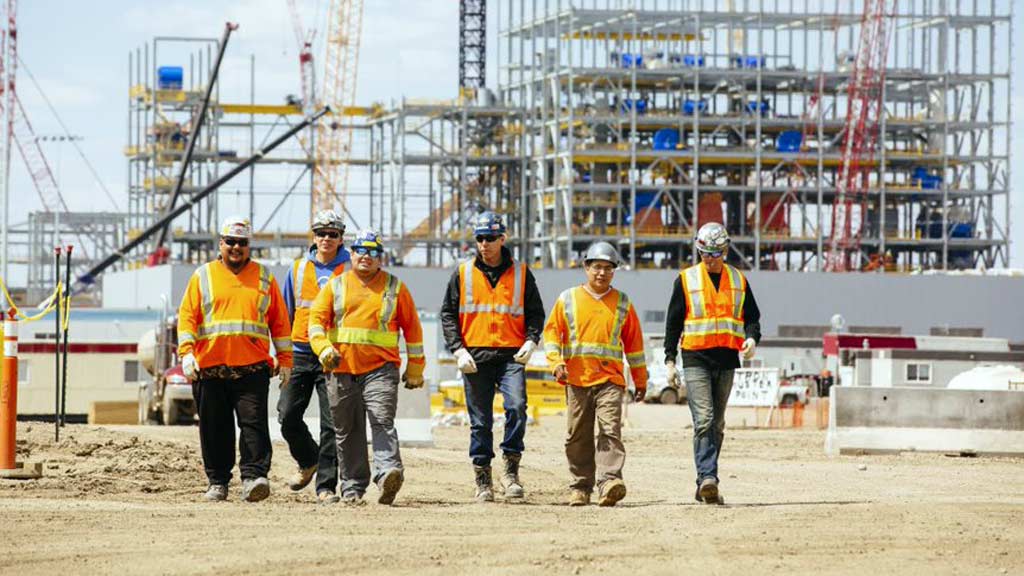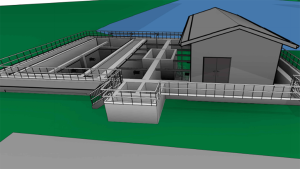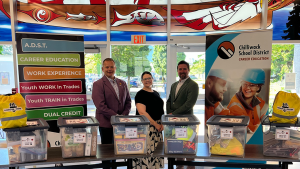Western Canada contractors are leading the rest of the nation in engagement of Indigenous communities.
Sean Surerus, president of one of Canada’s largest pipeline contractors founded 50 years ago by father Brian, said the company today has six employees dedicated to Indigenous relations. Based in Fort St. John, the Surerus Pipeline has decades-long dealings with First Nations but there has been a heightened focus during the past decade, Surerus said.
“It is a good practise and it makes sense,” he said. Hiring local Indigenous employees and supporting local Indigenous business and communities is part of doing business today and any company wanting to expand is working with Indigenous groups who are also looking for more economic opportunities, he said.
“The energy sector is a key driver,” he said as pipeline proponents are engaging with First Nations as both stakeholders and as rights holders. Pipeline proponents are making commitments to Indigenous community and for construction companies performing the work that translates into the ability to hire, train, and work with Indigenous communities, suppliers and contractors.
“We have spent about $100 million supporting Indigenous businesses over the past three years,” he said, adding his company has also participated in employment and skills enhancement programs and is currently launching a skills readiness program aimed at ensuring the company has skills in place to meet new proposed pipeline demands.
Having access to a skilled Indigenous labour force, contractors, and good community relationships provides a contractor a competitive edge, he said. But there is also another reason to engage. Like other construction companies, he is aware of the massive exodus of the baby-boomers and the continued labour and skills shortages.
BuildForce executive director Bill Ferreira said the Western Canadian construction industry has been more successful than Eastern Canada in drawing in Indigenous people to the construction industry. Indigenous construction workers account for 5.6% in B.C., 6.4% in Alberta, 12% in Saskatchewan and 16% in Manitoba of the construction work force. Those numbers are not seen in Eastern Canada as a region, Ferreira said, apart from Nova Scotia where 5% of the workforce is Indigenous.
“A part of that is the amount of promotion the industry has done,” he said. The Western Canadian companies have been actively promoting and engaging Indigenous engagement for decades but more recently government has also become involved and helped draw in Indigenous people to construction.
“We are seeing more construction companies working in remote or northern areas and investing in training; this is increasing the capacity of Indigenous people to pursue trades,” he said, as it allows Indigenous people to stay connected to their traditional territory. “I think the industry is doing a good job.”
Chris Atchison, president of the BC Construction Association, said that federal infrastructure projects also are spurring engagement of the Indigenous communities. The BCCA has not specifically targeted Indigenous individuals, he said, but “our Skilled Trades Employment Program, for the past 10 years has had a high participation of our First Nations throughout the province.”
Graham Construction has a near 30-year relationship with engaging the Indigenous community, said marketing manager Andrea Rawas. Graham, like other companies, has a dedicated director of business redevelopment and Indigenous relations, as well as having issued an eight-page brochure in late 2019 outlining its commitment to Indigenous engagement. Bird Construction has implemented a mandatory Indigenous Cultural Awareness Training program for all Bird employees. The Ledcor-Haisla Limited partnership pursues major projects in the Kitimat area. DonEllis also has a long relationship with Indigenous communities and during the construction of the Park Vancouver project drew heavily from the community. Through working with various social enterprises and Indigenous Training Centres, it had 20.88% of employees came from the downtown area for the project.
In 2017, Indigenous Works, an organization that promotes engagements, issued a major report looking at how Corporate Canada engaged with Indigenous communities and found that only 15% of Canadian companies had moved to forge relationships.
Kelly Lendsay , president and CEO, said the resource sector is an exception, with an estimated 60-80% of companies engaged with Indigenous groups through partnerships, hiring, and establishing positive relationships. “What we do know about construction is that it falls somewhere in there as well – construction is doing better than the disengaged majority,” he said, citing commitments such as that of the Canadian Construction Association, an Indigenous Works member, which has published its Indigenous Engagement Guide. “It (CCA) was one of the first industries to develop a guide,” said Lendsay, after the report was issued.
First Nations groups at the same time are not sitting still waiting for opportunity but pursing new ventures such as setting up their own construction companies (either privately through groups or through nations) and also taking an equity stake in projects.
A leader has been North Vancouver’s Tsleil-Waututh Nation (TWN). Lori Simcox, business development officer and CEO of TWN’s SPAL General Constructors said the company was established help create economic opportunities the Vancouver area. Engagement has gone beyond simply hiring First Nations but forging economic partnerships. “Meaningful Indigenous engagement in the construction industry has grown exponentially in the last eight (years),” she said. SPAL, last year, worked on projects valued at $80 million.
“I do think SPAL is leading the way in B.C.,” Simcox said, although each First Nations has its own priorities in how it pursues economic opportunities. “SPAL partnership agreements are not what you might presume; they are very tailored to the way the Nation does business. Partnership agreements are signed and negotiated based on relationship development with companies that have the same integrity and value as the community,” she said.











Recent Comments
comments for this post are closed